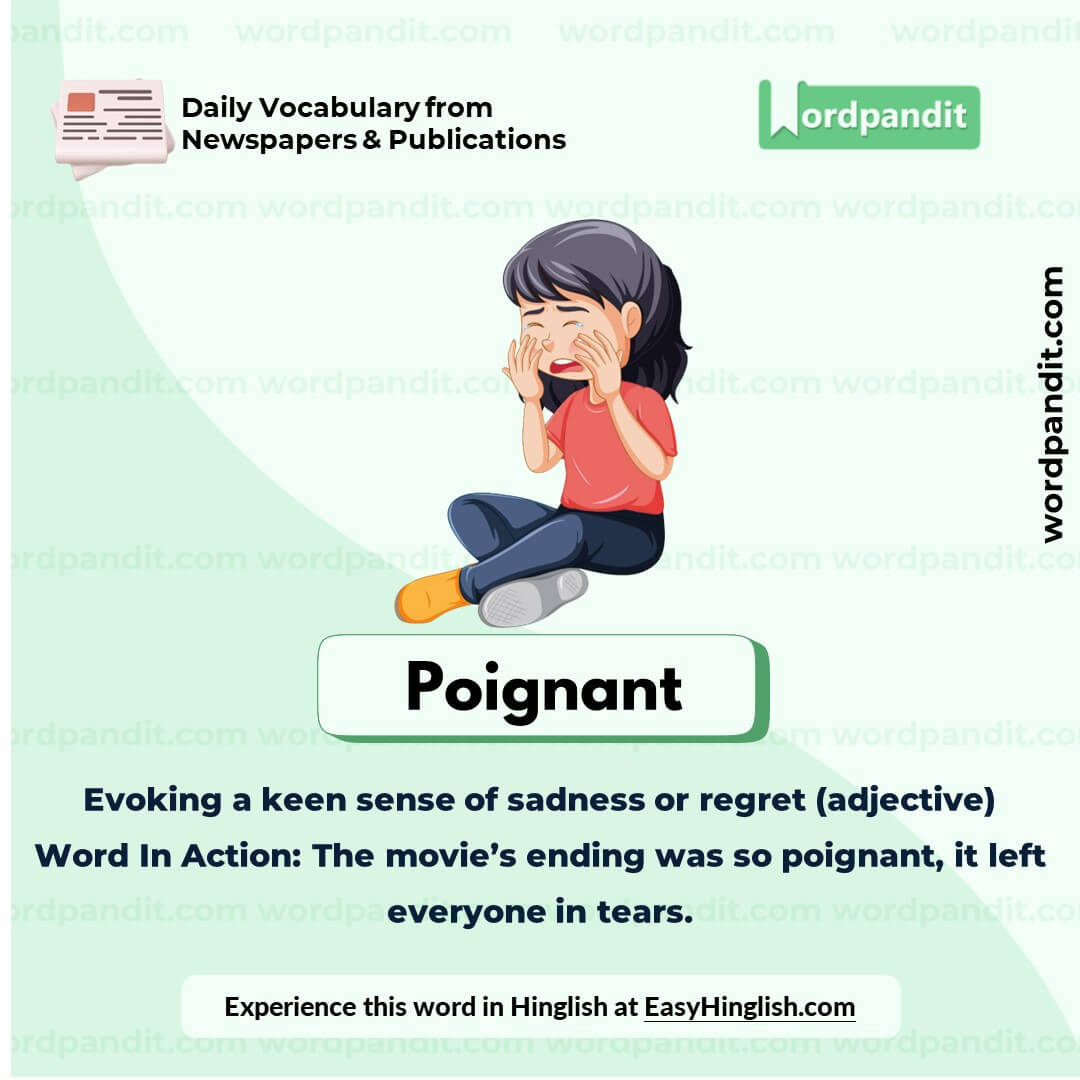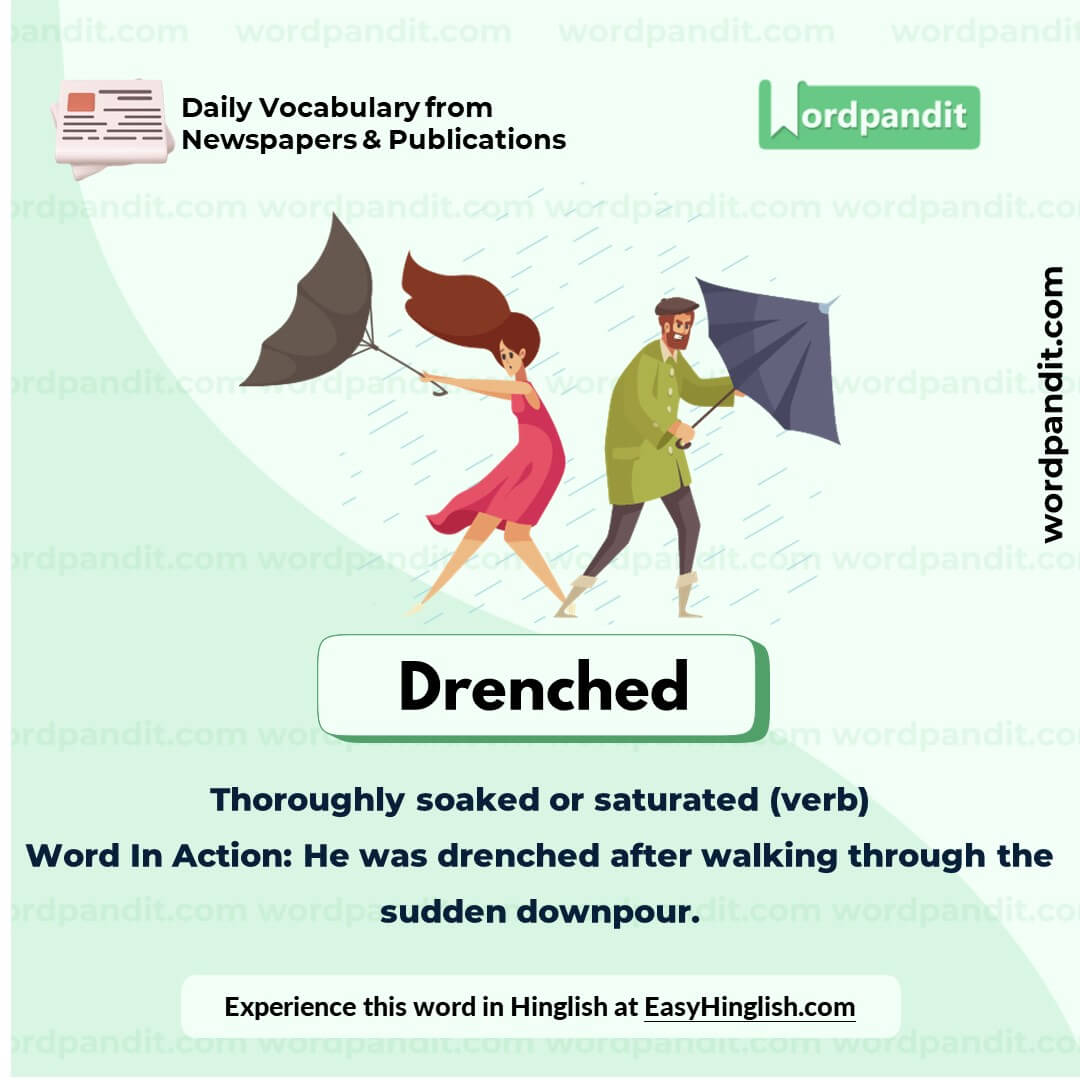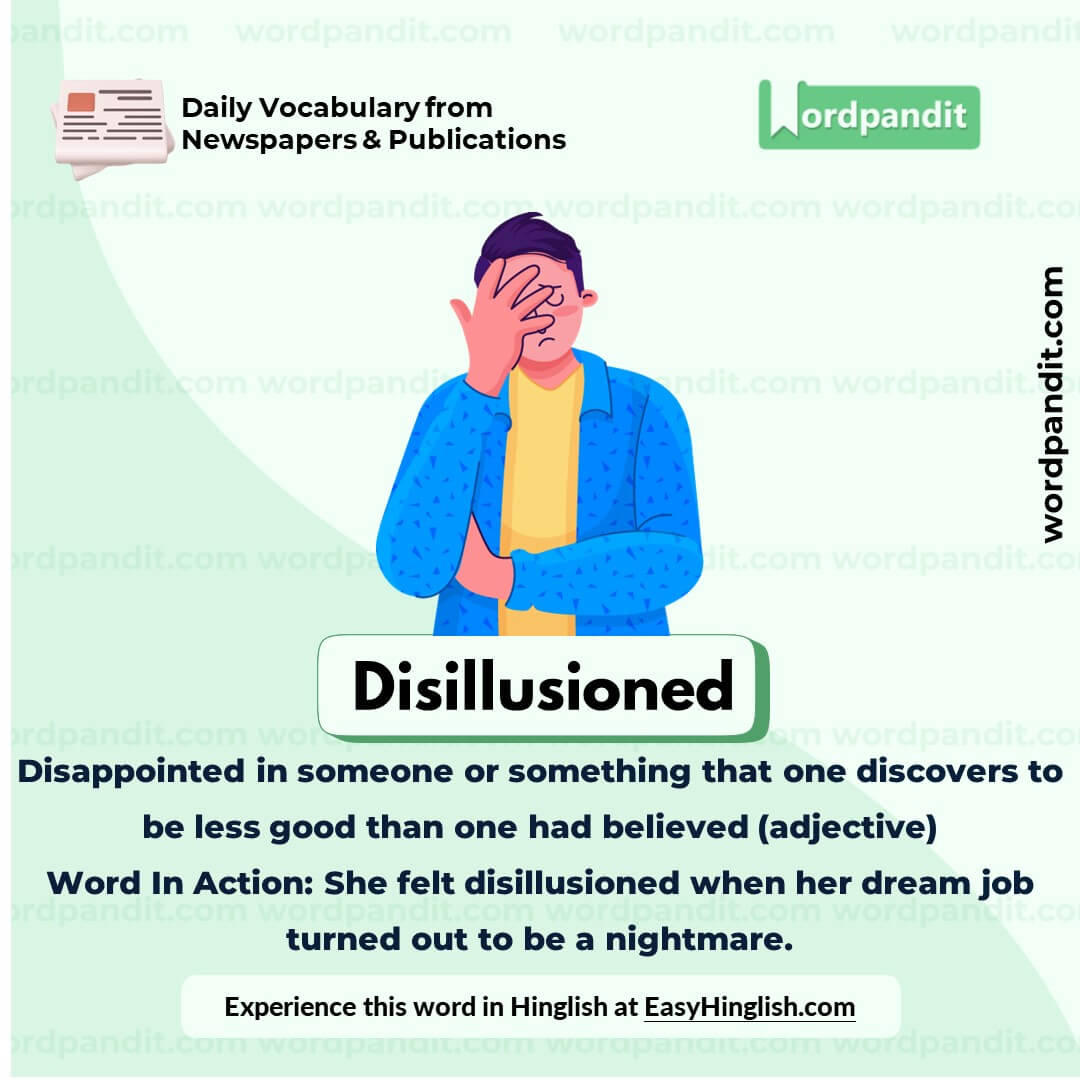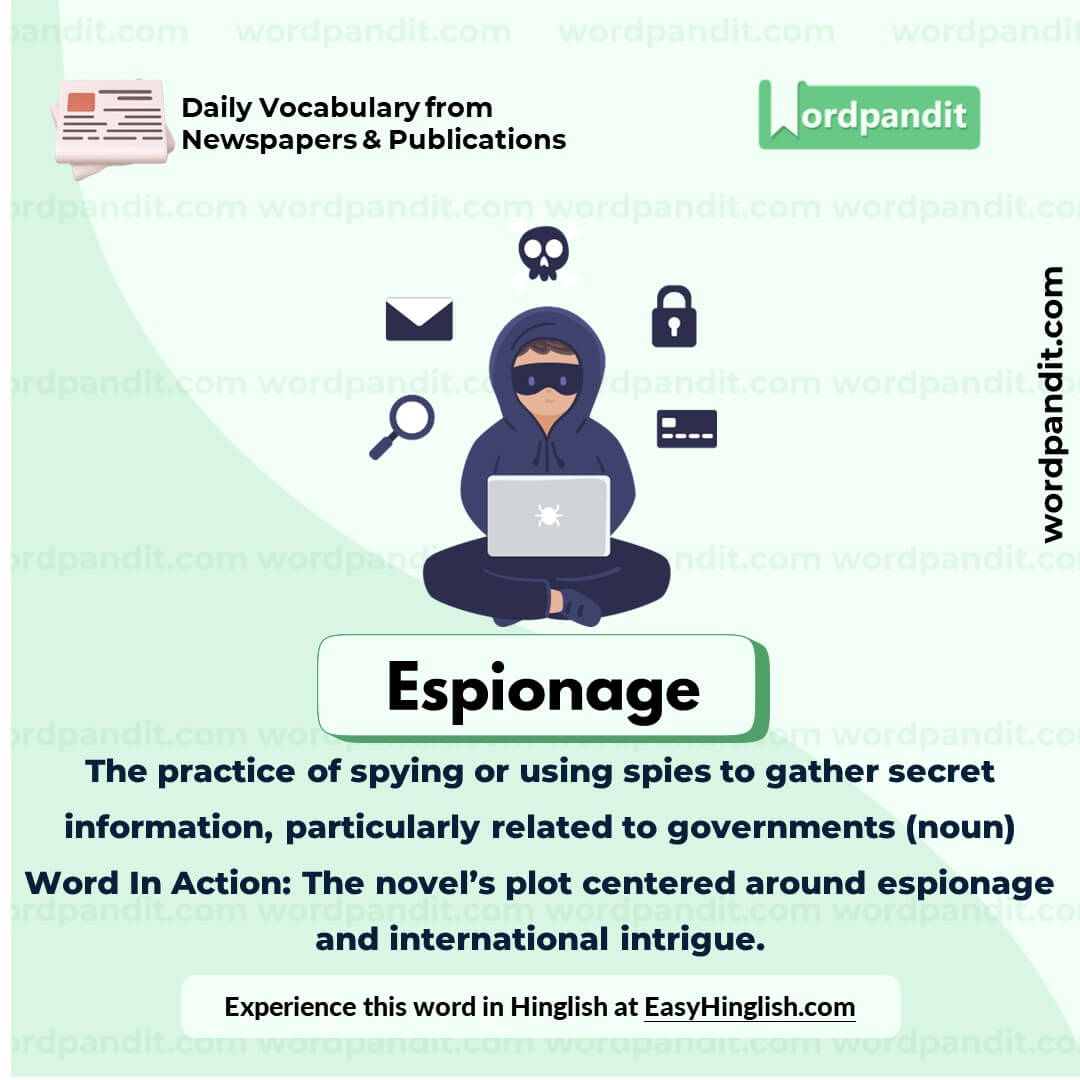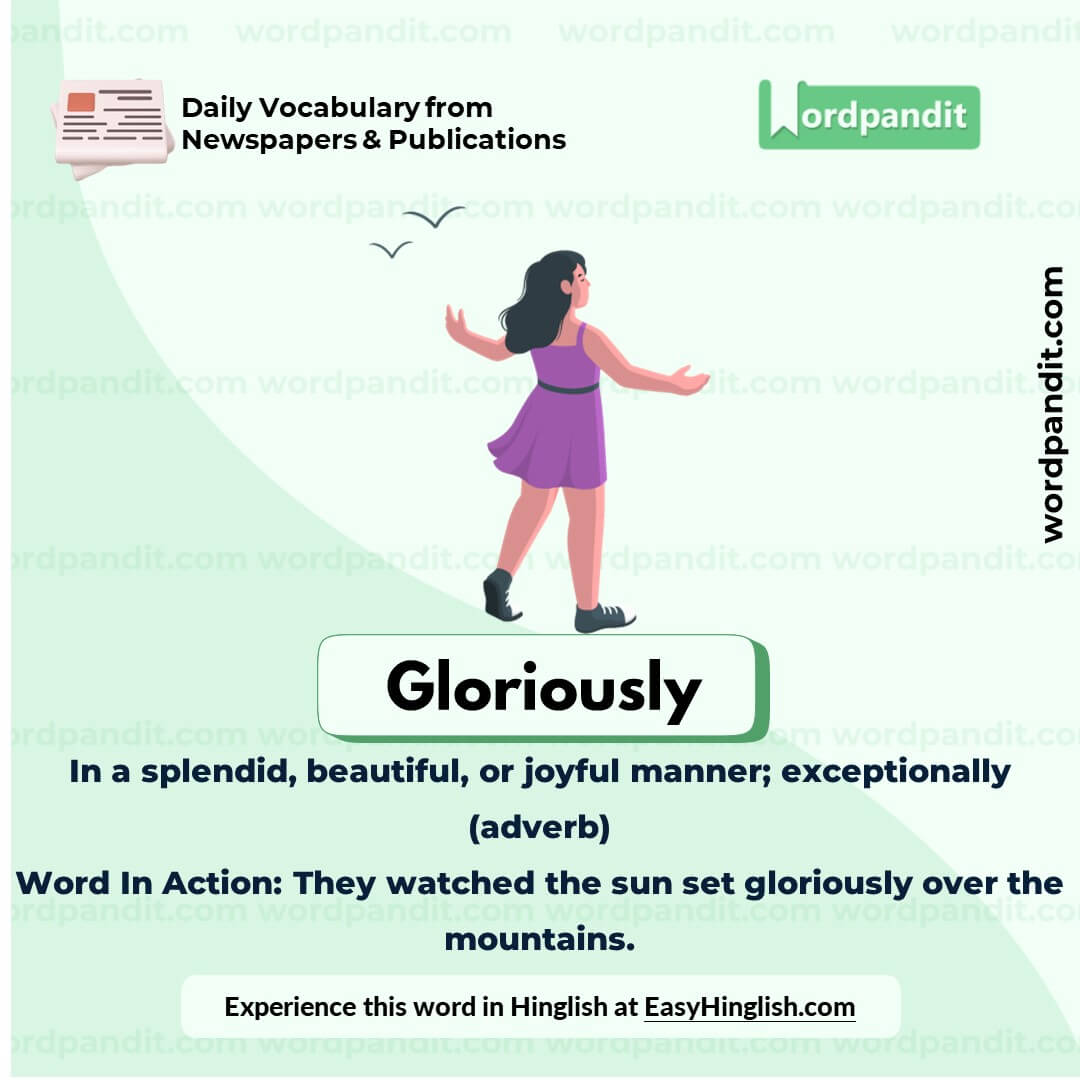Daily Vocabulary from International Newspapers and Publications
Expand Your Vocabulary with Wordpandit’s Global Vocabulary Hub
At Wordpandit, we are committed to helping you develop a truly global vocabulary by drawing from some of the most respected international publications. This section is designed to keep you ahead of the curve by introducing you to words that define global conversations and trends.
The Power of Global Sources
To help you think and communicate on a global scale, we curate vocabulary from renowned international sources, such as:
- The New York Times
- The Washington Post
- BBC
- The Guardian
- The Economist
- Scientific American
- Psychology Today
- And many more...
Stay Global, Stay Competitive
Our daily updates from international publications ensure you are consistently exposed to new words that reflect global news and developments, making sure your vocabulary is not only current but also globally relevant.
Enhance Your Global Perspective
Whether you’re preparing for international exams, aiming to excel in global business communication, or want to enhance your language skills for personal growth, Wordpandit offers the resources you need to thrive in a global context.
Effective Learning, Global Reach
Our learning methodology combines global examples, memory aids, and interactive activities, allowing you to internalize new words effectively and apply them in real-world scenarios.
Begin Your Global Vocabulary Journey Now!
Why Choose Wordpandit?
Practical Learning: Focus on words you'll actually encounter in real-world reading, enhancing your comprehension and communication skills.
Diverse Content: From current affairs to scientific breakthroughs, our varied sources expose you to vocabulary across multiple domains.
Effortless Integration: Make Wordpandit a part of your daily routine. Just a few minutes each day can significantly boost your lexicon over time.
Your Path to Vocabulary Mastery
- Visit our Daily Vocabulary section regularly
- Explore new words and their usage in context
- Practice incorporating these words into your own writing and speech
- Track your progress as your vocabulary expands
Start Your Journey Today
Embark on your vocabulary enhancement journey with Wordpandit. By consistently engaging with our daily posts, you'll build a robust vocabulary that serves you well in academic, professional, and personal contexts.
Remember, a word a day keeps linguistic limitations at bay. Make Wordpandit your daily companion in the quest for vocabulary excellence!
WORD-1: Poignant
Context:
"However, as galleries mark the Manifesto's centenary with exhibitions on Surrealism and its legacy, the movement's poignant response to the war years that spawned it is being brought to the fore." - BBC
Explanatory Paragraph:
The word poignant describes something that deeply moves or touches the emotions, often bringing up a feeling of sadness or nostalgia. In this context, it emphasizes how Surrealism, born from the traumas of war, evokes powerful emotions, reflecting the pain and turmoil of that era.
Meaning: Evoking a keen sense of sadness or regret (adjective)
Pronunciation: POYN-yuhnt
Difficulty Level: ⭐⭐⭐ (Intermediate)
Etymology: From Old French poindre, meaning "to prick or sting," ultimately from Latin pungere
Synonyms & Antonyms:
Synonyms: touching, moving, emotional, affecting, heartfelt
Antonyms: unmoving, indifferent, dull, apathetic, trivial
Usage Examples:
- The film's ending was especially poignant, leaving the audience in tears.
- His speech about his late father was brief but incredibly poignant.
- The artist's poignant portrayal of loss resonated with many visitors.
- The letter held a poignant reminder of their childhood friendship.
Cultural Reference:
"The poignant music of the violin seemed to echo the sorrows of the past." - This sentiment has been reflected in many works of classical music, where composers like Tchaikovsky and Chopin have evoked powerful emotions.
Think About It:
Why do you think certain memories or experiences feel more poignant than others? How might this influence art and storytelling?
Quick Activity:
Write a few sentences describing a personal memory that feels poignant. Try to capture the emotions you felt at the time.
Memory Tip:
Remember "poignant" by thinking of "point"—like a point that pricks your heart, reminding you of something deeply moving or sad.
Real-World Application:
Using the word "poignant" can bring emotional depth to storytelling, speeches, or reflections, helping listeners or readers connect more deeply with your message.
WORD-2: Drenched
Context:
"If that short, blunt opening offends your delicate sensibilities, then you, dear reader, best dispense finally with the saccharine-drenched myths about a divided, discordant nation that has elected a fascist as president – again." - Aljazeera
Explanatory Paragraph:
The word drenched typically means to be thoroughly soaked or saturated. Here, it suggests that the "myths" are overwhelmingly infused with sweetness, implying an unrealistic or overly sentimental view. The use of "drenched" adds intensity to the idea, emphasizing that the myths are excessively filled with sugar-coated illusions.
Meaning: Thoroughly soaked or saturated (verb)
Pronunciation: drencht
Difficulty Level: ⭐⭐ (Beginner)
Etymology: Originates from Middle English drenchen, meaning "to drown or soak," from Old English drencan
Synonyms & Antonyms:
Synonyms: soaked, saturated, sopping, soaked-through, steeped
Antonyms: dry, arid, parched, dehydrated
Usage Examples:
- After the sudden downpour, we were completely drenched from head to toe.
- His clothes were drenched in sweat after the intense workout.
- The fields were drenched with rain, turning them into a muddy mess.
- The room was drenched in sunlight, giving it a warm and inviting feel.
Cultural Reference:
The phrase "drenched in blood" has been used historically to describe battlefields after intense conflicts, often symbolizing the total saturation of a place with a specific emotion or event.
Think About It:
How does the choice of the word "drenched" change the emotional impact of a sentence compared to simply saying "covered" or "wet"?
Quick Activity:
Write a short description of a scene where everything is "drenched." What effect does this have on the atmosphere of the scene?
Memory Tip:
To remember "drenched," think of "drown"—when something is drenched, it’s as if it has been drowned or overwhelmed in liquid.
Real-World Application:
Using "drenched" can add vivid imagery to your descriptions, whether describing a scene that’s physically wet or emotionally intense, making it ideal for both creative writing and impactful journalism.
WORD-3: Disillusioned
Context:
"Disillusioned by the rational thinking that led to the mass destruction of world war, artists such as Magritte and his Dadaist predecessors embraced the illogical, creating disconcerting works inspired by the subconscious world of dreams." - BBC
Explanatory Paragraph:
The word disillusioned describes a feeling of disappointment after realizing that something or someone isn’t as good as previously believed. In the context of this sentence, it highlights the artists' disappointment with rational thought, which was associated with the horrors of war. This disillusionment led them to explore irrational and dreamlike expressions in their art.
Meaning: Disappointed in someone or something that one discovers to be less good than one had believed (adjective)
Pronunciation: dis-uh-LOO-zhuhnd
Difficulty Level: ⭐⭐⭐ (Intermediate)
Etymology: From the prefix dis-, meaning "opposite of," and illusion, meaning a mistaken or false idea, from Latin illusio
Synonyms & Antonyms:
Synonyms: disappointed, disenchanted, cynical, disheartened, skeptical
Antonyms: hopeful, optimistic, idealistic, trusting
Usage Examples:
- She became disillusioned with politics after seeing repeated corruption scandals.
- The team felt disillusioned when their hard work went unrecognized.
- Disillusioned by the empty promises of fame, he decided to pursue a simpler life.
- Many people feel disillusioned with society's focus on material wealth.
Cultural Reference:
After World War I, the "Lost Generation" of writers, including Ernest Hemingway and F. Scott Fitzgerald, expressed a disillusioned view of society, reflecting the emotional toll of the war in their works.
Think About It:
How does becoming disillusioned with something or someone impact a person’s values and future choices?
Quick Activity:
Write about a time when you felt disillusioned with something or someone. What caused this feeling, and how did it change your perspective?
Memory Tip:
Remember "disillusioned" as "losing an illusion"—when you see the truth, and it’s disappointing.
Real-World Application:
The term "disillusioned" is often used in discussions about politics, relationships, and careers, where people frequently encounter realities that differ from their expectations.
WORD-4: Espionage
Context:
"Prosecutors had originally requested a 17-year sentence for Teixeira, saying he 'perpetrated one of the most significant and consequential violations of the Espionage Act in American history'." - The Guardian
Explanatory Paragraph:
Espionage refers to the act of spying, especially with the goal of gathering confidential information about a government or organization. This word often carries serious implications, as espionage can influence national security and international relations. In the context above, it relates to an alleged violation of the Espionage Act, indicating a severe breach of trust and national security.
Meaning: The practice of spying or using spies to gather secret information, particularly related to governments (noun)
Pronunciation: ES-pee-uh-nahzh
Difficulty Level: ⭐⭐⭐ (Intermediate)
Etymology: From French espionnage, derived from espionner meaning "to spy," and ultimately from Latin spiare
Synonyms & Antonyms:
Synonyms: spying, intelligence, surveillance, reconnaissance, infiltration
Antonyms: openness, transparency, disclosure
Usage Examples:
- The government increased its security measures to counter potential espionage threats.
- During the Cold War, espionage was a crucial tool for both the United States and the Soviet Union.
- The novel's main character is a master of espionage, working undercover in foreign nations.
- Corporate espionage has become a concern for many tech companies seeking to protect their innovations.
Cultural Reference:
In popular culture, espionage is frequently represented in James Bond films, where spies engage in secret missions to prevent global threats. The term has become synonymous with the intrigue and danger of intelligence work.
Think About It:
Why do you think espionage is both a necessary tool for governments and a potential threat to international trust?
Quick Activity:
Imagine you are a character in a spy novel. Write a short paragraph describing a tense espionage mission where you gather secret information.
Memory Tip:
Think of "espionage" as "SPY-on-age" to remember its association with spying and intelligence work.
Real-World Application:
The concept of espionage is important in fields like national security, corporate intelligence, and cybersecurity, where protecting sensitive information is crucial.
WORD-5: Gloriously
Context:
"People, of all ages, shapes, geographies and situations, are too gloriously varied." - NY Times
Explanatory Paragraph:
Gloriously is an adverb that describes something as exceptionally wonderful, impressive, or joyful. In this context, it emphasizes the beauty and richness of human diversity. The word suggests that the many differences among people—whether in age, appearance, culture, or life experience—are something to celebrate and appreciate.
Meaning: In a splendid, beautiful, or joyful manner; exceptionally (adverb)
Pronunciation: GLOR-ee-uhs-lee
Difficulty Level: ⭐⭐ (Beginner)
Etymology: From Latin gloriosus, meaning "full of glory," from gloria, meaning "glory"
Synonyms & Antonyms:
Synonyms: splendidly, magnificently, superbly, beautifully, wonderfully
Antonyms: poorly, ordinarily, plainly, unimpressively
Usage Examples:
- The sun set gloriously over the ocean, painting the sky in shades of pink and orange.
- The team won the match gloriously, celebrating with joy and pride.
- She laughed gloriously, her joy filling the room and lifting everyone’s spirits.
- The flowers bloomed gloriously in spring, adding vibrant color to the garden.
Cultural Reference:
In John Milton's epic poem "Paradise Lost," the word "glorious" is often used to describe the grandeur of Heaven and God’s creations, evoking images of beauty and magnificence.
Think About It:
What are some things in life that you think are "gloriously" unique? How does viewing them this way change your perspective?
Quick Activity:
Describe a moment in nature that you found "gloriously" beautiful. What made it so memorable?
Memory Tip:
To remember "gloriously," think of "glory" plus "joyously"—something that brings both admiration and delight.
Real-World Application:
The word "gloriously" can be used to enhance descriptions in storytelling, helping convey beauty, joy, or magnificence in nature, people, and experiences.


